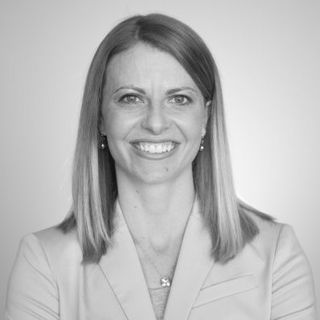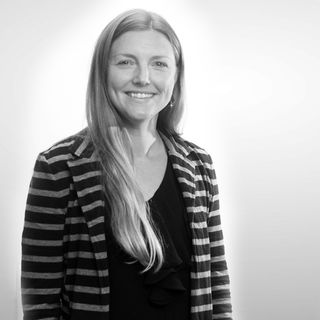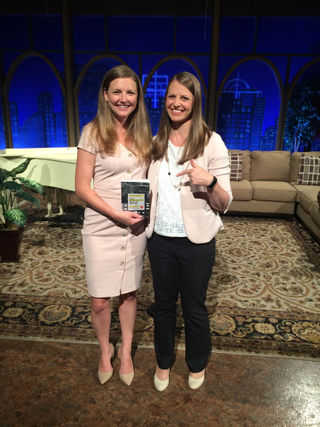Health
Poor Health in Poor Neighborhoods
My Q&A with Veronica Squires and Dr. Breanna Lathrop on health disparities.
Posted May 14, 2020


We all live as part of a larger community. But the location of that community carries social implications for how the people who reside there can live. Health and wellness in many places are often worse because of injustice and inaccessibility. These problems are even further exacerbated in times of emergency, like the COVID-19 pandemic.
Veronica Squires is Chief Administrative Officer at The Good Samaritan Health Center in Atlanta, Georgia, where she leads strategy, expansion, and development efforts. She is a certified Christian Community Development Association (CCDA) practitioner and serves on the advisory board for the Georgia Charitable Care Network.
Dr. Breanna Lathrop is Chief Operating Officer and a Family Nurse Practitioner for Good Samaritan Health Center. She earned her Doctor of Nursing Practice from Georgia Southern University and a Master of Public Health and a Master of Nursing from Emory University.
JA: Why did you set out to write your book, How Neighborhoods Make Us Sick?
VS & BL: Without yet knowing each other, we each spent a decade deeply entrenched in serving impoverished Atlanta neighborhoods – Veronica on the southwest side in community redevelopment, and Breanna on the southeast side in a clinical environment treating uninsured families. Even while both worked to improve the lives of their neighbors and patients, they noticed a discouraging trend: Difficult neighborhood environments were causing human languishing and there was no easy cure.
Searching for answers they pored over social justice literature, community development theory, and medical scholarship – only to find it beyond the world of traditional healthcare expressed as social determinants of health or “the structural determinants and conditions in which people are born, grow, live, work and age.”
The purpose of our book and advocacy work is to describe, both for those familiar and unfamiliar with impoverished urban communities, why these neighborhoods are making people sick and what it would take to transform them into places that promote health equity. Through personal experiences, we describe social determinants and illustrate their impact on health. The book points to field experts and local leaders, describing best practices across the country and offering practical steps toward improving community health.
The book offers an approachable Christ-centered vision for health equity and challenges readers to re-think issues affecting inner cities and engage personally and collectively to improve health outcomes for these neighborhoods.
JA: What are some takeaways you hope readers will learn from reading your book?
VS & BL:
- All people want, need, and deserve is a safe, healthy place to live, work, play, and raise their families.
- Poor neighborhoods are sick because social determinants of health contribute to health status and life expectancy.
- It’s an injustice that someone’s ZIP code (more so than their genetic code) should dictate their lifespan and quality of life.
- We can all make a difference by working collaboratively in our respective spheres to answer the question, “what will make our neighbors healthy?”
- God loves this world and pursuing health equity in our communities is a way of responding to God’s love.
JA: What are some lessons from your book that can help people live more resiliently?
VS & BL: Breanna and I are constantly inspired by our patients who demonstrate resilience every day. We share many of their stories in our book in an effort to show that despite the grave effects social determinants can have on the human body or a community, getting people healthier (even small changes) can impact quality of life and life expectancy for the better. Our own stories also demonstrate this when, despite the fact that we both first experienced failure in our efforts to make a difference, we are now flourishing in our work and feel more inspired than ever to help make healthier neighborhoods across the country.
JA: What are some insights from your book that help readers support a friend or loved one?
VS & BL: In many ways, our book is about trauma and recovery. In our own journeys, we have learned the importance of suspending judgment and listening to the person on the other side. It’s so important to move from thinking “what is wrong with this person?” to “what happened to this person?” which is a shift from assuming they are intrinsically doing life wrong to being on a hard journey that is manifesting in poor health behavior or outcomes. We wrote a blog about this here.

JA: What are you currently working on these days?
VS & BL: Both Breanna and I are lifelong learners! While we are excited to see the conversation about health equity catching on, we feel there are still many questions left unanswered in terms of how to scale these efforts and honor the dignity of communities along the way. As such, Breanna is participating in the Robert Wood Johnson Culture of Health Fellows Program and I am pursuing an Executive MBA from Emory University.
JA: Anything else you would like to share?
VS & BL: I am including a link to a listing of other interviews, podcasts, and shows we have done (scroll down below the book description for links)! Thanks again for considering us.
More information about Veronica and Breanna:
Veronica writes and speaks regularly on a variety of topics including non-profit fundraising, community development strategy, faith & work, and women in leadership. Follow Veronica on social media on Facebook, LinkedIn, Twitter and check out her personal blog, Why Moms Quit. Favorite Quote: “Never doubt that a small group of thoughtful, committed citizens can change the world; indeed, it’s the only thing that ever has.” – Margaret Mead
Breanna writes and speaks regularly on a variety of topics including social determinants of health, healthcare policy and reform, homelessness, faith, and health care, and nursing practice. Follow Breanna on social media on Facebook, LinkedIn, and Twitter. Favorite Quote: “He has shown you, O mortal, what is good. And what does the Lord require of you? To act justly and to love mercy and to walk humbly with your God.” – Micah 6:8
References
Squires, V. & Lathrop, B. (2019). How neighborhoods make us sick: Restoring health and wellness to our communities. InterVarsity Press.




